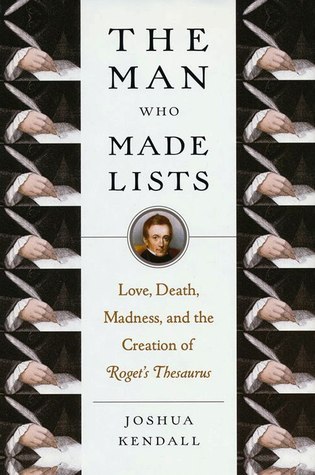What do you think?
Rate this book


297 pages, Hardcover
First published January 1, 2008
The title tells all: rather than a discussion of etymology, The Man Who Made Lists examines Dr. Roget and his creation through a psychological lens. Critics couldn't help but compare the effort to Simon Winchester's acclaimed The Professor and the Madman (2001), about the making of the Oxford English Dictionary. Incidentally, in the Atlantic, Winchester criticized Roget's Thesaurus for fostering "poor writing" in its indiscriminate cataloging. While even those reviewers who agreed with Winchester's assessment acknowledged the value of Kendall's subject matter, they diverged on its execution. A few thought the book well-written, a fine balance between historical research and novelistic flourishes. Others found forced dialogue and scenes, slack narrative, and factual errors. Still, The Man Who Made Lists is a fascinating look at a man, an era, and a now-iconic book.
This is an excerpt from a review published in Bookmarks magazine.